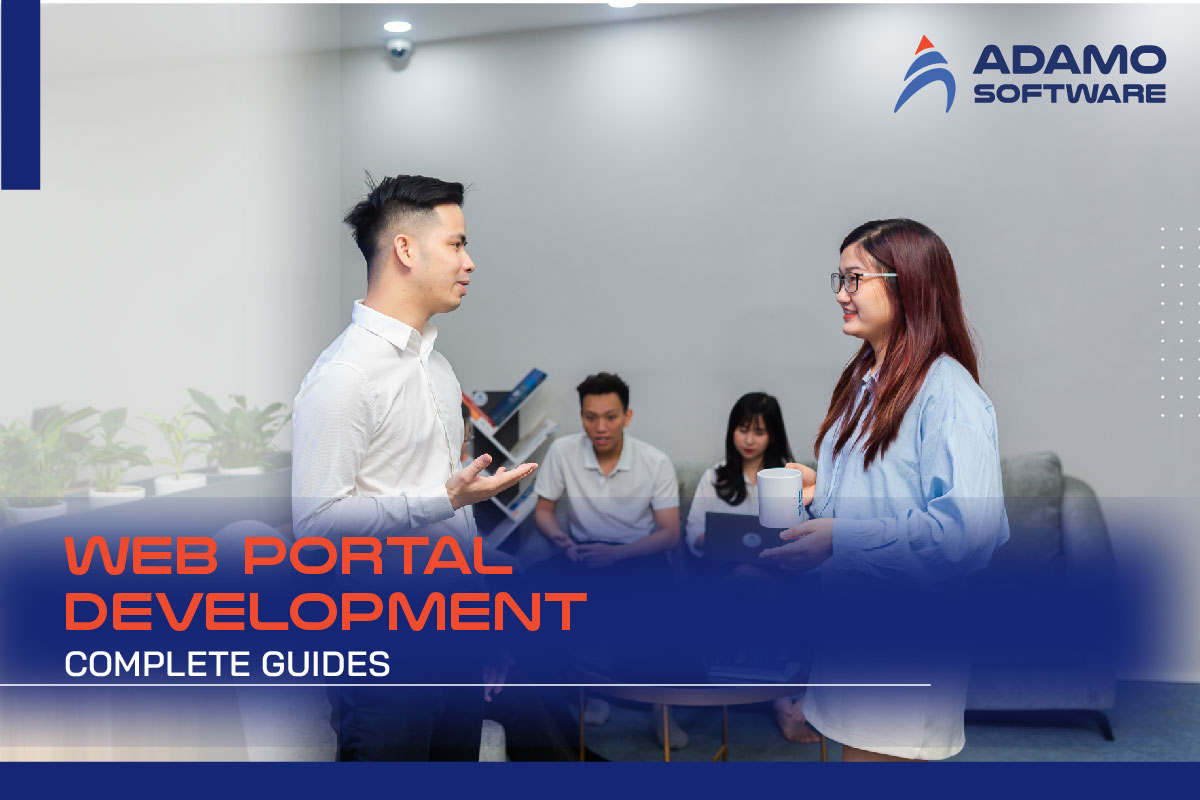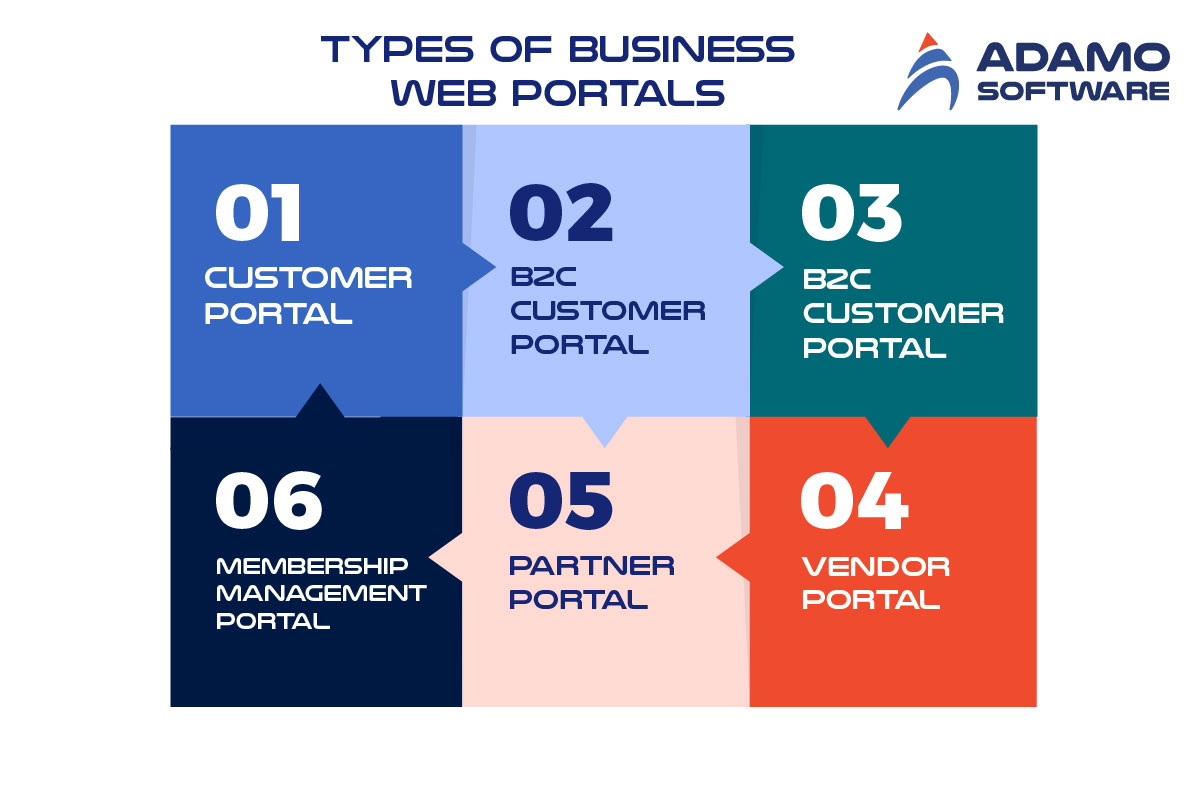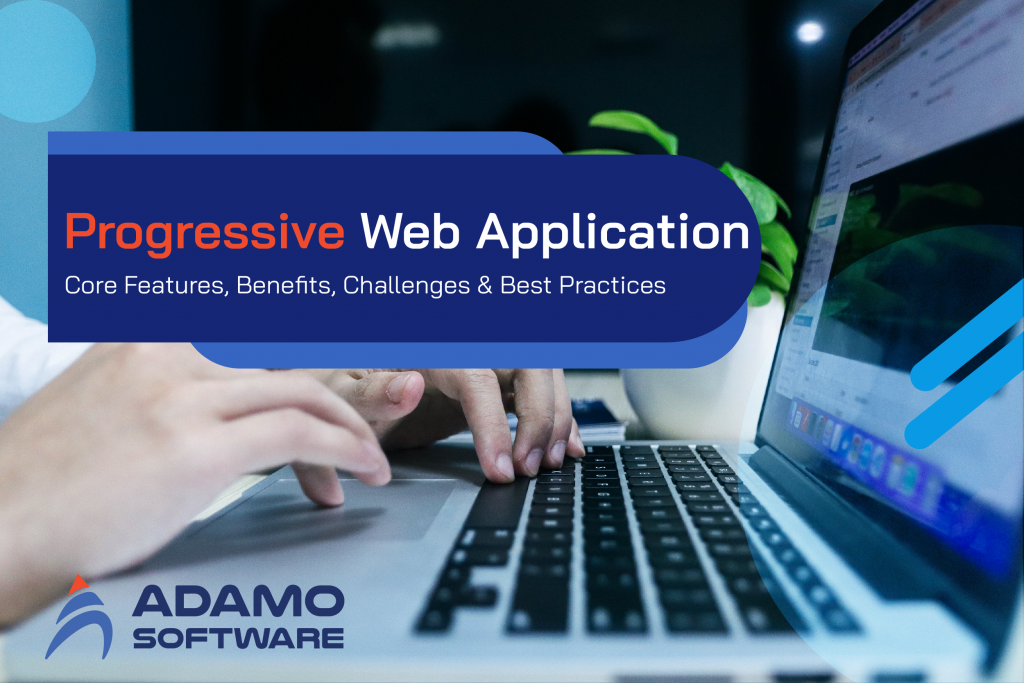Web portal development: Complete guides

Web Portal Development can provide your business with new opportunities for communicating special announcements, discounts, and data with stakeholders.
Web-based solutions have become widespread among enterprises. One would be hard-pressed to discover a business that would not benefit from a web portal. This form of software enables organizations to automate numerous processes and significantly increase employee, customer, and partner engagement with the business.
However, how much money does a company need for user-friendly web portal development that meets its specific requirements? And what factors will determine the cost? In this article, we will attempt to answer these concerns and provide you with fundamental information about web portal development.
I. What is web portal development?
Web portal development facilitates the creation of this helpful, secure, and personalized access point that organizes data based on the requirements of individual users.
It is also known as web portal app development and portal app development. In any case, the procedure requires the application of advanced web development skills and best practices, including complex app development, registration systems, and server-side and client-side scripting.
II. Key differences between the website and web portal development
| Website | Web portal | |
| Definition | A web-based solution comprising web pages with publicly accessible content. | A web-based solution that provides authorized users with access to personalized aggregated content. |
| Access | Accessible via URL. | Accessible via URL plus a login (username and password). |
| Users | Broad audience, no restrictions. | Only a specific group of authorized individuals. |
| Content | Can be changed only by admin. | Changeable by authorized users with the necessary permissions. |
| Purposes | Create a digital presence for a business, drive traffic. | Create a single point of access to information for authorized users. |
III. Common types of business web portals
This part will discuss more specialized web portal development that is geared toward specific purposes and has distinct audiences.

1. Customer Portal
By creating a customer portal, a business can not only advance its customer service and sales processes but also increase brand loyalty.
Users of such a portal can place and monitor orders, report problems, activate or deactivate services, receive personalized recommendations, and review the purchase history without having to contact the company’s customer service representatives. This saves them time, improves their satisfaction, and fosters long-lasting relationships.
2. B2C customer portal
If you sell products or services, a B2C customer portal is an indispensable instrument. Not only does it increase sales by providing superior customer service, but it also aids businesses in establishing long-lasting, loyal relationships with their customers that develop into partnerships.
Several features must be included in your B2C portal: account creation and editing, intuitive and advanced order placement, tools for checking and managing orders, and multiple payment options. Therefore, every customer can complete the transaction easily and successfully, with personalized product and reporting tools.
3. Employee Portal
The creation of an employee portal should be one of the initial stages for businesses undergoing digital transformation. It is similar to an internal social network in which users can communicate, assign duties, update each other on significant events, post comments, log timesheets, request vacations, etc.
Additionally, employee portals make it simpler for new hires to overcome onboarding chaos and help them integrate more seamlessly into the team. People collaborate more effectively and remain more engaged as a result.
4. Partner Portal
Companies do not exist in a vacuum; they must regularly collaborate with numerous other companies. This is particularly true for real estate, the travel industry, banking, healthcare, and logistics.
To conduct their activities successfully, organizations in these business niches must assure a continuous process of information exchange, two-way communication, and continuous participation from all parties involved. A partner portal is a fantastic instrument for facilitating dependable, productive, and fruitful interactions with other businesses.
5. Vendor Portal
This type of portal is ideal for businesses that require a robust platform for communication and data exchange with numerous suppliers.
Vendor administration is essential but time-consuming. Therefore, vendor portals are developed to encourage self-service, reduce employee overload, and save money. Vendor portals also facilitate and improve departmental collaboration, as your employees can access and utilize all vendor information from a single location.
6. Membership management portal
This type of web portal is useful for any organization that offers membership subscriptions, such as learning platforms. In addition to evident advantages such as self-service, such portals enable greater accuracy of members’ data at all times, as users can update it whenever their personal information changes.
In addition, customer base management is almost entirely automated. Members receive all materials, construct instruction or other plans for utilizing a service, monitor progress, payment, etc. with minimal manual administration on your part.
IV. Steps to create a web portal
1. Planning stage
First, you will determine who the web portal development is for, why, and when. You will also specify how you will make the information accessible, tailored to the requirements of stakeholders, secure, and up-to-date.
2. Market research
Expanding your business without first comprehending your competitors is risky. Market research can help you prepare for shifting markets and maintain your company’s competitive advantage.
You can conduct research on your competitors by, for instance, reading their online content, collecting any flyers and price lists they generate for customers, or even purchasing their products and services for comparison purposes. In addition, you can conduct email surveys to determine what your consumers desire in a product.
After conducting market research, you must determine your product’s unique selling proposition (USP).
For example, Amazon delivers products to your doorstep at no additional cost.
3. Finalize features & functionalities
When market research is complete, it is time to finalize the features and functionalities of your web portal development.
Our team has compiled a list of six features that you can incorporate into your web portal development. These features will address the most pressing issues a customer may encounter.
_ Easy Navigation: A portal that is simple to navigate provides the greatest user experience, as it allows users to access content much more quickly.
_ Trendy UI/UX: Attractive designs attract customers’ attention and establish your brand’s credibility.
_ Relevant Content: People access websites for their content. Therefore, ensure that consumers receive accurate information.
_ Product Visuals and Descriptions: Consumers who visit a company’s website consider product and service images and descriptions to be of equal value.
_ Link Social Media Accounts: Linking social media incorporation on your website provides valuable social proof, allowing users to verify the legitimacy of a business.
_ Blogs: Including a relevant blog on your website will assist customers in learning more about your products and services.
Once you have narrowed down the list of features, identify the company that can assist with integrating your custom features. You can select a web development company that can advise you on the most effective integration strategies and features for web portal development.
4. Choose the right web development partner
The quality of your company’s web portal development can make or break its growth. Consequently, choosing the wrong web portal development company can be disastrous.
We will share guidelines for forming a successful web portal development partnership.
_ An experienced web portal development firm will comprehend your business requirements, place itself in your shoes, and provide solutions that align with your brand, demands, and objectives.
_ Request work samples from the web portal development collaborator and jot down what you like and dislike.
_ A prominent web portal development firm has extensive industry knowledge and specialized expertise. In addition to web developers and graphic designers, they should employ solution architects, QA engineers, scrum masters, and team leaders.
_ Avoid companies that provide estimates that are twice as high or half as high as those of competitors.
_ Request a two- or three-week trial period if the web portal development company has excellent references and appears genuine, but you are still uncertain. You can delegate a specific portion of the project to a candidate to observe how they manage it and determine if this strategy is suitable.
_ Check out the reviews of previous customers and pay close attention to them.
_ Employ web portal developers with experience in developing projects for various industrial niches from reputable companies.
5. Web portal development
In this phase, developers will provide their technical expertise and develop the most effective technologies for web portal development. A dozen tools and platforms are required to create a custom portal, including:
_ MySQL, Cassandra (NoSQL), and AWS (cloud) databases.
_ For back-ends including Node.js and PHP scripting.
_ Cloud platforms such as Amazon Web Services.
_ Front-end technologies including HTML5, Javascript, and Angular.
_ CMSs such as WordPress, Magento, and Salesforce.
The UI developer is responsible for creating the client-side portion of the web portal development. The back-end developers will then construct APIs to connect the database to the front end.
Then, they will integrate into the portal all of the resources you or your users need to achieve their objectives. This could include custom software or even SaaS products, based on your use case.
Also read: Back-end Development: Everything You Need to Know about Web & App Development
6. Testing stage
Before deploying portal applications, experienced developers test them for errors, omitted requirements, and instability.
7. Deploy the web portal
All previously identified issues have been resolved in the first version of the new portal application, which is now available for testing by a select group of key users.
8. Monitor performance and maintaining
If the portal meets your KPIs and standards, it is time to allow more users access and monitor its performance in real-time. Again, working with an exceptional web portal development service can assist you in developing a portal that functions without complication, without wasting time, money, or damaging your reputation among users.
V. FAQs
1. How much is the web portal development cost?
Your web portal development costs will vary based on the specific functionalities that you and your consumers wish to achieve.
We, therefore, recommend consulting with an experienced web portal development firm. Tell them what you need the portal to do for your users and business. Then, a reputable vendor will provide you with a quotation that you can use to develop a portal app budget that meets all of your requirements, including usability, security, and more.
2. How to create a web portal for free?
_ Select a free website builder and register.
_ Choose a template and modify it to your specifications.
_ Simply drag and place hundreds of required features.
_ And ultimately, make your website public.
This is how you can create web portal development for your company for free.
3. What is a company’s average span to develop portals?
On average, it takes between 3 and 5 months to develop a comprehensive web portal. However, this duration is subject to change. It depends on variables such as the project’s complexity, the effectiveness of the team, the utilization of the technology stack, and other factors.
VI. Sum Up
If you are looking for a web portal development company, Adamo will be your ideal choice since we have lots of profound experience in web development as well as web portal development in various industries. Contact us for free IT consulting about your business ideas.





